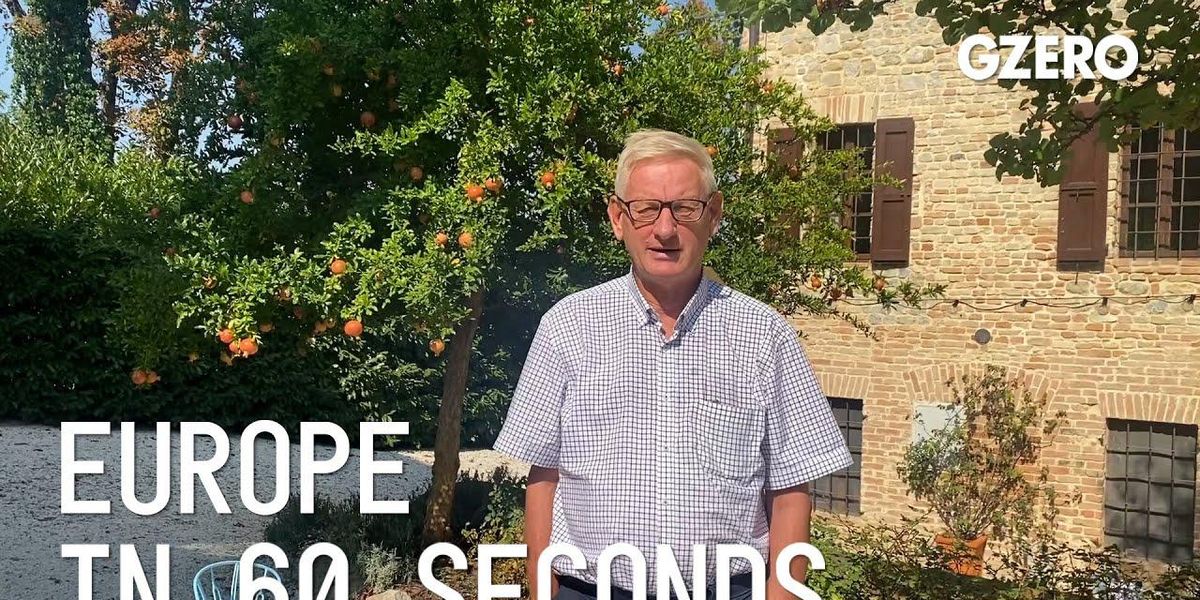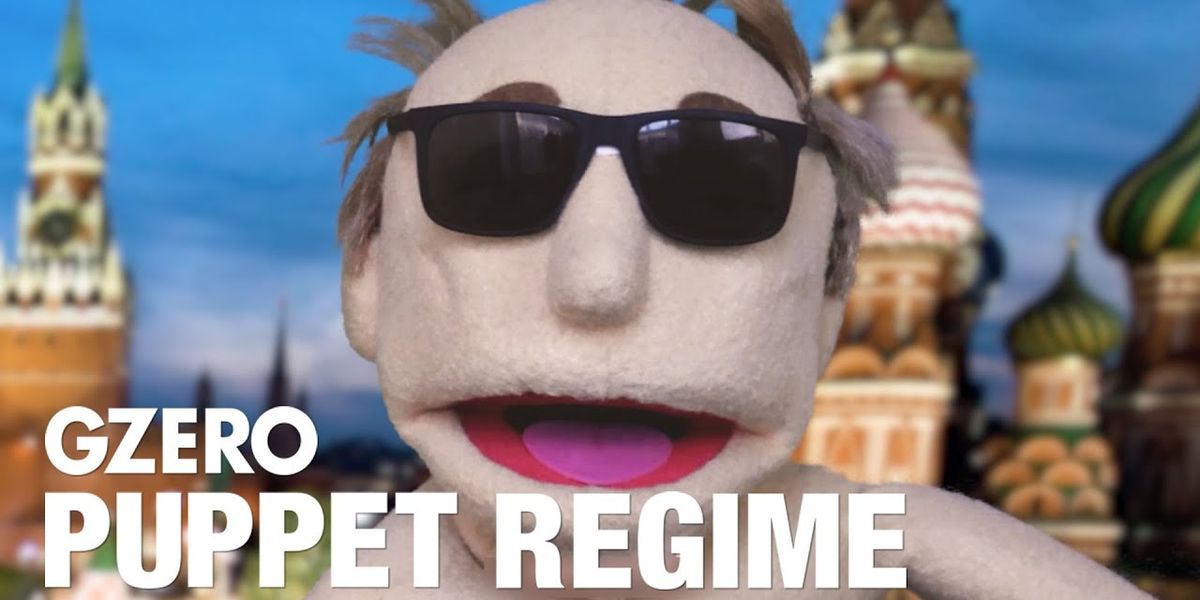Trending Now
We have updated our Privacy Policy and Terms of Use for Eurasia Group and its affiliates, including GZERO Media, to clarify the types of data we collect, how we collect it, how we use data and with whom we share data. By using our website you consent to our Terms and Conditions and Privacy Policy, including the transfer of your personal data to the United States from your country of residence, and our use of cookies described in our Cookie Policy.
{{ subpage.title }}
Germany’s political crisis, explained
While the United States was still busy counting votes, Germany’s ruling coalition led by Chancellor Olaf Scholz suddenly fell apart last Wednesday, plunging Europe’s largest economy into chaos. Now, Germans are set to head to the polls on Feb. 23 – seven months earlier than originally planned – to elect a new government at a particularly challenging time for their country, the EU, and the world.
What happened?
After less than three years in power, the so-called “traffic light” coalition of Scholz’s center-left Social Democrats, the environmentalist Greens, and the pro-business Free Democrats collapsed on Nov. 6 when the chancellor unceremoniously fired his finance minister and the Free Democrat leader, Christian Lindner.
The move followed months of bitter negotiations over how to plug a roughly €10-billion hole in next year’s federal budget. The coalition’s progressive partners favored taking on more debt to boost spending on infrastructure, defense, and aid to Kyiv (Germany is the second-largest contributor of military aid to Ukraine after the US). The fiscally conservative FDP opposed any new borrowing despite Germany’s low debt-to-GDP ratio, instead pushing for tax and spending cuts that would reduce welfare transfers, aggravate Germany’s malaise, and curtail support for Kyiv.
The standoff came to a head because Germany has a strict constitutional debt limit the government is not allowed to exceed outside of exceptional circumstances like the COVID-19 pandemic. When Scholz asked his finance minister to suspend the “debt brake,” citing the exceptional impact of the war in Ukraine, Lindner refused to budge, and the traffic light broke.
This was the conclusion of an uneasy marriage of convenience riven by ultimately irreconcilable differences about how to kickstart Germany’s long-stagnant economy and execute the foreign and security policy Zeitenwende (or “turning point”) that Scholz proclaimed when he replaced Angela Merkel as chancellor in 2021. One Russian invasion of Ukraine and three years of gridlock, high energy costs, and flat growth later, Germans have soured on their government. A recent poll found that only 14% of voters were satisfied with the ruling coalition, with 54% wanting early elections.
What now?
Scholz’s Social Democrats and Friedrich Merz, who succeeded Merkel as leader of the opposition conservative Christian Democratic Union, have agreed to hold a vote of confidence to trigger the dissolution of parliament on Dec. 16. Provided Scholz loses it – as is widely expected – early elections will then be held on Feb. 23.
In the meantime, Germany will be in a limbo of sorts. The chancellor and his remaining Green coalition partner will remain in office until a new coalition is elected, but as the head of a minority government, he now has to secure support from opposition parties on a case-by-case basis to get any laws passed. In particular, Scholz needs votes from Merz’s conservatives to pass an all-important 2025 compromise budget. But that’s a very tall order, requiring not only painful concessions from the CDU – especially on the suspension of the debt brake – but also that the SPD give up core elements of its legislative agenda in return.
If no budget is passed by year-end, as looks likely, Germany will enter into “provisional budget management” – a state of limited government operations and funding based on 2024 numbers. While this won’t lead to a government shutdown like it would in the United States, no new obligations or programs could be passed before a new government finally approves a 2025 budget, potentially not until the second or third quarter of next year. This would restrain Berlin from active policymaking during the critical early days of Donald Trump's presidency, at a time when Europe is more rudderless than ever and Russia continues to threaten Ukraine and NATO.
The road ahead
The opposition CDU/Christian Social Union center-right alliance leads the national polls with 34%. Of the “traffic light” coalition parties, Scholz’s SPD is polling at around 16%, while the Greens hover at 11%. Lindner’s Free Democrats, meanwhile, are currently below the 5% threshold required to get into parliament.
The far-right Alternative for Germany is the second-most popular national party, with 17% support, but all other parties continue to explicitly rule out the possibility of entering into a coalition with it. The newer pro-Russian, anti-immigration, left-wing Sahra Wagenknecht Alliance, which made large gains in September’s state elections, is somewhat less domestically toxic than AfD and polling at 6%.
Of course, there are still more than three months to go until the election, and these numbers will change, especially in the wake of the government’s collapse. But barring any major surprises, the CDU’s Merz is all but certain to become the 10th German chancellor since 1949. Assuming the conservatives’ most natural partner, the FDP, is unable to clear 5%, the only open question is whether the next government will be a grand coalition of the CDU/CSU and the SPD or another three-way coalition including them plus the Greens.
Grand coalitions have a long history in Germany and are popular with voters for their track record of delivering moderation and stability. Three-way coalitions, by contrast, are an unwieldy, unstable last resort for mainstream parties to form majority governments in Germany’s increasingly fragmented party landscape – a challenge that is only going to accelerate as the anti-establishment AfD and BSW continue to grow in popularity.
Whatever it looks like, the next government will have to contend with the big challenges that the current administration failed to address. Germany faces deep structural problems, including chronically low productivity and investment, high energy and labor costs, unfavorable demographics, a fragile export-dependent growth model, and an overly rigid debt limit rule.
But Berlin’s biggest challenges aren’t economic – they’re existential. At a time when Russia is testing NATO's resolve, China is challenging the Western-led international order, and America's commitment to Europe is in question, Germany must decide what kind of power it wants to be.
Will Europe’s economic engine finally step up as a geopolitical leader, or will it continue to punch below its weight? For Germany’s next government, there may be no more kicking this can down the road.
After Merkel, who leads Europe?
Carl Bildt, former Prime Minister and Foreign Minister of Sweden, shares his perspective from Europe:
Who's going to be the leading voice politician in Europe after Angela Merkel leaves?
Well, that remains to be seen. First, we need to wait for the outcome of the German election, and then it's going to take quite some time to form a government in Germany to see who's going to be chancellor. And then of course we have elections coming up in France in the spring. Macron is likely to win, but you never know. So by next summer, we'll know more about that. And then there are other personalities there. There's Mario Draghi, prime minister of Italy, who has a strong personality. Mark Rutte of the Netherlands, as long as he's there. So it's going to take quite some time for this to be sorted out.
What did Boris Johnson achieve during his visit to the United States?
Well, I think his number one priority at the moment must be to mobilize broader international support for climate efforts. He is the host of the COP26 Climate Summit in Glasgow in November. That must be a success and I hope that he makes further progress in that direction during his days in the United States.
Merkel's White House visit will have symbolism and substance
Carl Bildt, former Prime Minister and Foreign Minister of Sweden, shares his perspective from Europe:
Why is the United Kingdom opening up and what's happening in the rest of Europe?
Well, I mean, my personal view is that there's an element of complacency in Europe and elsewhere. The Delta variant is spreading rather fast. We'll see an increase in infections in a number of countries. Remains to be seen how this will be handled.
What's going to be an outcome of the Angela Merkel visit in the White House?
Well, to some extent, it's a farewell visit. But I think there's going to be a lot of substance because the policies advocating and personified, to a certain extent by Angela Merkel, are going to be the policies that are going to be dominating Europe in the years ahead. Be that Russia, be that China, be that transatlantic relationship. So, symbolism certainly, but a lot of substance as well.
Jeff Bezos has a solution for work-life balance
In the wake of the pandemic, we're all trying to figure out what work-life balance even means anymore. Here's what a few of the most powerful people in the world have to say about it.
Watch more PUPPET REGIME!
Subscribe to GZERO Media's YouTube channel to get notifications when new videos are published.
- Rap battle: Zuckerberg vs COVID-19 - GZERO Media ›
- PUPPET REGIME: The fairytale kingdom - GZERO Media ›
- The Drug Deal of the Century | PUPPET REGIME - GZERO Media ›
- Angela Merkel is interviewing | PUPPET REGIME - GZERO Media ›
- Jeff Bezos' Blue Origin space flight & the new space race - GZERO Media ›
- Jeff Bezos' Blue Origin space flight & the new space race - GZERO Media ›
- Zuckerberg's metaverse trap - GZERO Media ›
- Santa's elves bet on Trump tariffs - GZERO Media ›
Angela Merkel's missed connection
On Angela Merkel's last Valentine's Day as chancellor, she thinks back to East Germany, 1987. He was a foreign agent, she a quantum chemist. What might have been?
Biden's mailbox is full
Now that Joe Biden is president, he's getting an earful from the likes of Putin Merkel, Kim Jong-un and .... who else?
- PUPPET REGIME: The fairytale kingdom - GZERO Media ›
- Joe Biden the COVID Vaccine Candyman | PUPPET REGIME - GZERO Media ›
- Joe Biden's trillion dollar tune | PUPPET REGIME - GZERO Media ›
- Biden the whisperer of things - GZERO Media ›
- The delta skelter song | PUPPET REGIME - GZERO Media ›
- Biden in Training: Has Joe still got it? - GZERO Media ›
- The 3am Call Comes for Biden - GZERO Media ›
- Joe Biden's next chapter - GZERO Media ›
"Dude, you lost?" World leaders react to the US election
After days of tension and uncertainty, Joe Biden defeated Donald Trump in the US presidential vote -- but how are world leaders like Kim Jong-un, Vladimir Putin, Angela Merkel, and Mark Zuckerberg taking the news?
Watch more PUPPET REGIME
World leaders are freaking out about the US vote too
You think you've been in a knot about Florida, Pennsylvania, Michigan, and Arizona? Spare a thought for the leaders of Iran, Russia, Saudi Arabia, Germany and.... Facebook!






